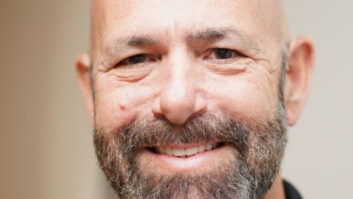Arlington, Va. – The Consumer
Electronics Association (CEA) is applauding efforts on electronics stewardship
and CE recycling by the federal government and individual CE companies.
CEA cited the U.S. Environmental
Protection Agency (EPA), U.S. General Services Administration (GSA) and White
House Council on Environmental Quality (CEQ) along with consumer electronics
companies for their work on recycling.
issued a similar statement earlier today and
announced a two-day eCycling event it is co-sponsoring to take
place in Oklahoma later this month.
“Electronics recycling is a
national problem that deserves a national solution. Today’s announcement from
EPA, GSA and CEQ echoes the
our industry laid out this spring with the
eCycling
Leadership Initiative
,” said Walter Alcorn, CEA environmental affairs and
industry sustainability VP.
The eCycling Leadership
Initiative, an industry-led effort
to recycle 1 billion pounds of electronics annually by 2016, is
coordinated by CEA and aims to bolster consumer education of eCycling and
increase the number of recycling locations and infrastructure needed to reach
the annual target.
Additionally, the initiative is
committed to transparency and measurement, as well as supporting the voluntary
implementation of recycler certification systems so that the 1 billion pounds
of electronics is recycled in third-party certified facilities. In fact, all
the companies who helped develop the eCycling Leadership Initiative use
third-party certified recyclers or ones pursuing certification, and the
initiative is committed to practices prohibiting the use of recyclers and
downstream processors that dump end-of-life electronics in developing nations.
CEA’s Alcorn said the industry
still wants “to develop a national approach to eCycling that replaces the
patchwork of costly and confusing state regulations.”













